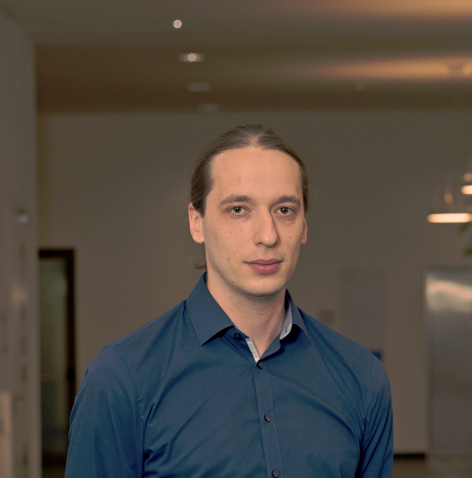Technological Advances Towards Human Wellbeing
Semiconductors are regarded as the foundation of modern computing. They have unique electrical properties that make them suitable for use in manufacturing various kinds of electronic devices, such as transistors and integrated circuits. In addition to electronics, semiconductors also play a central role in the operation of bank ATMs, trains, the internet, communication systems and various aspects of social infrastructure, including the medical network used for elderly care. Due to their unparalleled importance, semiconductors have been explicitly identified as essential national research and innovation priorities in the UK, US, EU, and Japan. Prof Niko’s research is dedicated to the broad applicability and multidisciplinary nature of this technology on a global scale.
His work centres on developing novel kinds of mechanically flexible electronics with bespoke electrical, mechanical, economic, environmental and biological properties using established technologies in combination with new oxide semiconductors, innovative processes such as self-alignment, and unconventional electronic materials including polymers, transient metals, and natural composites. Prof Niko believes that advances in semiconductor technology are directly relevant to numerous fields of research and the development of new technologies that will have a direct impact on the well-being of humans and the planet.

A Career in Semiconductor Technology
Niko is a solid-state physicist by training but has more than 15 years of experience in semiconductor technology and circuit design, fabrication and characterisation. He obtained his Doctorate in Electrical Engineering from ETH Zurich, Switzerland in 2013 after which he focused on the development of novel kinds of mechanically flexible electronics, which resulted in world records concerning their flexibility and speed.
Niko was appointed associate professor, physics of matter, in 2019 at Free University of Bozen-Bolzano, Italy. He has more than 150 peer-reviewed publications in journals, books and conference proceedings with more than 5,000 citations. He is a member of the German Physical Society, a senior member of the Institute of Electrical and Electronics Engineers (IEEE) and a fellow of the Higher Education Academy, UK. Prof Niko is also a recipient of numerous international grants, including funding contracts with industry.
An International Community of Researchers Shaping the Future
Niko’s project, supported by DIA, focuses on developing an international community around an enabling semiconductor technology with far-reaching applications to future sustainable electronics. The project utilises a multidisciplinary approach in bringing together a large group of outstanding researchers from the UK, US, EU, and Japan to pioneer device architectures, novel semiconductor materials and innovative flexible large-area technologies for source-gated thin-film transistors that will enable energy-efficient, environmentally friendly, and wearable applications that are not currently possible with traditional semiconductor technologies.
Niko believes that collaborations between the researchers will facilitate knowledge exchange and will serve as a focal point for long-term developments not only within flexible electronics communities but in related fields working on hardware systems for a connected world beyond the current Internet of Things (IoT). The DIA grant allows him to collaborate with Dr Radu Sporea from the University of Surrey to share substantial, multidisciplinary and international networks of research partners through which new collaborations can be created to define future research and innovation directions for human advancement and wellbeing.
The DIA program is the ideal framework to connect with collaborators, other DIAs, and the general public. It allows me to be an ambassador of the flexible electronics community.
A Roadmap Transmitting the Vast Potential of Semiconductor Technologies
Niko believes that an international community focused on the far-reaching applications of semiconductor technology will catalyse a tangible road-mapping document that can be used to transmit the potential of semiconductor technologies, specifically source-gated thin-film transistors, to a wide audience across different domains. Through the road-mapping document, engineering scientists in the field will be exposed to emerging ideas and concepts, which should readily translate into a broad range of implementation routes and applications. The developed research roadmap will also help to design state-of-the-art future-proof teaching materials for undergraduate and postgraduate students, providing them with a highly competitive education, within the curricular framework of respective institutions.
To achieve the development of this road mapping document, Niko and his collaborators are working on focusing the efforts of the international community onto flexible source-gated thin-film transistors to transform them into an enabling technology platform at the centre of a broad range of emerging technologies, including sensing, agriculture, and wellbeing monitoring technologies.
